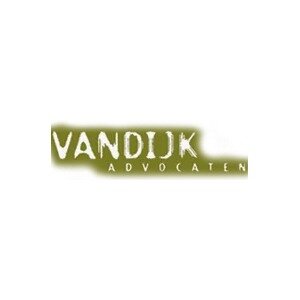Best Inheritance Law Lawyers in Rotterdam
Share your needs with us, get contacted by law firms.
Free. Takes 2 min.
List of the best lawyers in Rotterdam, Netherlands
1. About Inheritance Law in Rotterdam, Netherlands
Inheritance law in the Netherlands, including Rotterdam, governs how a person's assets are distributed after death. The system relies on the Dutch Civil Code, with Book 4 specifically covering erfrecht (inheritance) and related procedures. In most cases an notaris (notary) handles the probate process and the distribution of assets.
Rotterdam residents frequently deal with real estate, pensions, and financial accounts that require careful attention in an estate plan or during probate. Local property transfers, such as a house in Rotterdam, typically involve a notary to prepare and register the deed of transfer. If there is a will, the notary also interprets and executes the deceased’s wishes according to the law.
Two core pathways shape most Rotterdam cases: testate succession (where a valid will exists) and intestate succession (where there is no will). In both paths, a clear set of rules determines who inherits and how shares are allocated. Tax considerations, including inheritance tax, are handled separately by the Belastingdienst (Dutch tax authority) and can influence planning decisions.
In the Netherlands the notary is central to estate settlement, drafting wills, and coordinating the transfer of assets after death.Source: Burgerlijk Wetboek Boek 4 Erfrecht; official guidance via wetten.overheid.nl
2. Why You May Need a Lawyer
Drafting or updating a will in Rotterdam often requires precise language to reflect your wishes and to minimize disputes later. A lawyer or solicitor can ensure your document complies with Dutch law and is valid for probate.
Disputes over a will or an intestate distribution frequently arise among spouses, children, and stepchildren. An inheritance lawyer can negotiate a fair division and help with court or notarial proceedings in Rotterdam and surrounding municipalities.
Estate administration can become complex when real estate is involved, assets are located abroad, or there are limited or contested executors. A legal professional can manage timelines, filings, and communications with the notaris and tax authorities.
Contesting a will or defending a person’s rights as a statutory heir requires careful evidence gathering and procedural steps. A Rotterdam-based attorney can determine whether a legitieme portie (forced heirship share) applies and how to protect it.
Parents and guardians may need legal counsel when appointing guardians for minor heirs or when blending families within an estate. An inheritance attorney helps outline roles, duties, and timelines for executors and guardians in Rotterdam.
Finally, tax planning plays a significant role. A lawyer can optimize strategies to minimize erfbelasting (inheritance tax) while ensuring compliance with the Belastingdienst and applicable exemptions.
3. Local Laws Overview
Burgerlijk Wetboek Boek 4 (Erfrecht) is the central statutory framework for inheritance in the Netherlands. It governs wills, intestate succession, and the rights and duties of heirs and executors. In Rotterdam, as elsewhere, this law applies directly to asset distribution after death.
Successiewet 1956 (Inheritance Tax Act) regulates erfbelasting and the tax rates applicable to heirs. The act sets out exemptions, thresholds, and procedures for notifying the tax authorities after an estate is settled. It affects planning decisions and potential tax liability for beneficiaries in Rotterdam.
Notariswet (Notaries Law) governs the professional duties and authority of notaries in estate matters. Notaries in Rotterdam use this framework when drafting wills, executing estates, and registering transfers. The law emphasizes the notary’s role as an independent, neutral party in probate matters.
Kadastrale en real estate procedures involve the Kadaster (land registry) and related regulations when real property is transferred as part of an inheritance. In Rotterdam, the Kadaster records the transfer of ownership to new heirs or buyers following notarial deeds.
Recent trends in practice in Rotterdam include greater use of digital records and streamlined notarial processes for simple estates, while more complex estates with cross-border elements may require additional documentation and coordination with authorities. Estate planning and probate often involve multiple specialists, including tax advisors, notaries, and family lawyers.
4. Frequently Asked Questions
What is erfenis and how does it work in Rotterdam?
Erfenis refers to the assets and debts a person leaves behind after death. In Rotterdam, assets are distributed according to Dutch law or a valid will, typically coordinated by a notaris.
How do I start probate for a Rotterdam estate?
Begin by locating the deceased’s will if one exists and gathering key documents. A Rotterdam based solicitor or notary can guide you through probate steps, including required notices and asset inventory.
What is the role of a notary in inheritance matters?
The notary drafts and authenticates wills, handles probate, and registers transfers of property with the Kadaster. Notaries ensure legal validity and smooth execution of an estate.
How much does inheritance law help cost in Rotterdam?
Costs vary by complexity, typically including notary fees, attorney fees, and possible court costs. A straightforward will or probate may cost a few thousand euros, while complex estates can run higher amounts.
How long does probate usually take in the Netherlands?
Timelines commonly range from several months to a year, depending on asset complexity and whether disputes arise. Cross-border estates may extend the process further.
Do I need a lawyer if the will is simple?
A basic will may be manageable without counsel, but a lawyer can reduce risk of invalid provisions and help with timely probate and tax planning.
What is the difference between a will and intestate succession?
A will sets how assets should be distributed. If there is no will, intestate succession applies, and statutory rules determine heirs and shares.
Can a Rotterdam estate include assets located abroad?
Yes. Inheritance matters with international elements require coordination between Dutch authorities and foreign jurisdictions, often via a notary or international probate specialist.
Should I challenge a will in Rotterdam?
Challenging a will is possible if there are grounds such as lack of testamentary capacity, undue influence, or invalid formalities. Legal counsel helps assess viability and procedure.
Do I need to pay erfbelasting if I am a spouse?
Spouses and certain close relatives may have exemptions or lower rates under the Successiewet. An advisor can determine applicable reliefs and filing requirements.
Is there a time limit to contest a will in the Netherlands?
There are procedural time limits to pursue a challenge, typically tied to specific court actions or notices. An attorney can identify exact deadlines in your case.
What documents should I collect for an inheritance case in Rotterdam?
Key items include the death certificate, a will if present, identification, property deeds, bank statements, and a list of debts and assets. A lawyer can provide a tailored checklist.
5. Additional Resources
These official and professional resources can help you navigate inheritance matters in the Netherlands and specifically for Rotterdam residents.
- Rijksoverheid - The Dutch Government Portal - Official information on Dutch law, taxation, and procedures relevant to inheritance matters. https://www.rijksoverheid.nl
- Notaris.nl - Dutch Notaries Association - Professional body for notaries; provides guidance on wills, probate, and notary services in the Netherlands. https://www.notaris.nl
- Kadaster - Dutch Land Registry - Official source for registering property transfers and deeds after death. https://www.kadaster.nl
These resources are official or professional bodies that provide authoritative information on wills, probate, and related tax matters in the Netherlands.Sources: Official Dutch government portal and professional notary organizations; see links above
6. Next Steps
- Identify the estate situation in Rotterdam Gather the death certificate, any will, property deeds, bank statements, and a list of debts. Timeline: 1-2 weeks.
- Choose a Rotterdam based professional Decide whether to work with a notaris or inheritance lawyer. Seek a no obligation consultation to understand costs and steps. Timeline: 1-3 weeks.
- Obtain a preliminary estate assessment Have your lawyer prepare a rough inventory of assets, liabilities, and potential erfbelasting exposure. Timeline: 2-4 weeks.
- Decide on probate strategy If there is a will, assess validity and execution; if not, plan for intestate distribution. Timeline: 2-6 weeks.
- Protect and organize assets Ensure assets such as Rotterdam property are protected and can be transferred smoothly after probate. Timeline: ongoing during probate.
- Engage with tax authorities early Discuss erfbelasting implications to avoid surprises later. Timeline: align with probate milestones.
- Complete the transfer and registration The notaris files with Kadaster and finalizes transfers to heirs. Timeline: 1-3 months after probate is settled.
Lawzana helps you find the best lawyers and law firms in Rotterdam through a curated and pre-screened list of qualified legal professionals. Our platform offers rankings and detailed profiles of attorneys and law firms, allowing you to compare based on practice areas, including Inheritance Law, experience, and client feedback.
Each profile includes a description of the firm's areas of practice, client reviews, team members and partners, year of establishment, spoken languages, office locations, contact information, social media presence, and any published articles or resources. Most firms on our platform speak English and are experienced in both local and international legal matters.
Get a quote from top-rated law firms in Rotterdam, Netherlands — quickly, securely, and without unnecessary hassle.
Disclaimer:
The information provided on this page is for general informational purposes only and does not constitute legal advice. While we strive to ensure the accuracy and relevance of the content, legal information may change over time, and interpretations of the law can vary. You should always consult with a qualified legal professional for advice specific to your situation.
We disclaim all liability for actions taken or not taken based on the content of this page. If you believe any information is incorrect or outdated, please contact us, and we will review and update it where appropriate.












